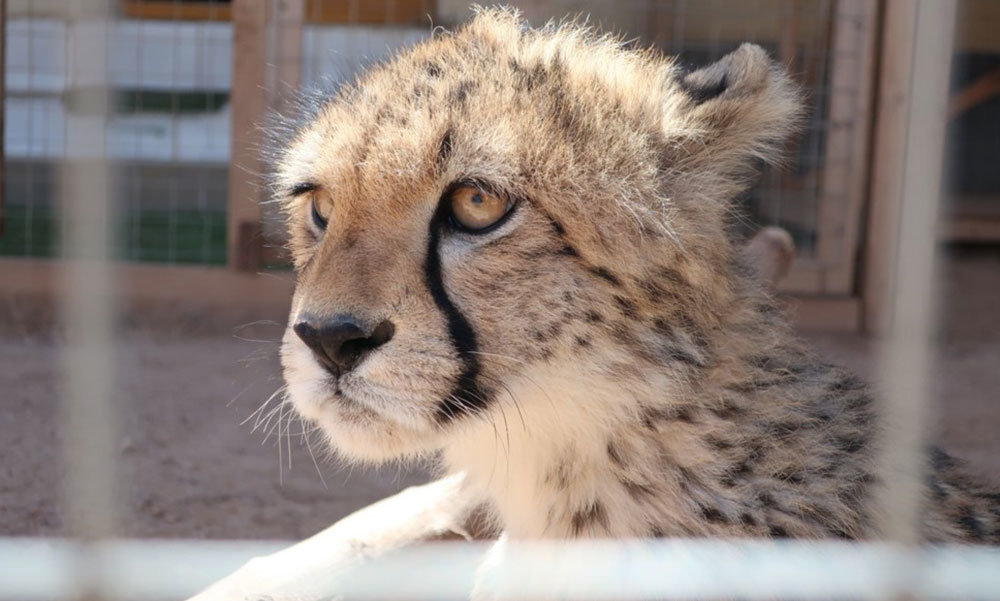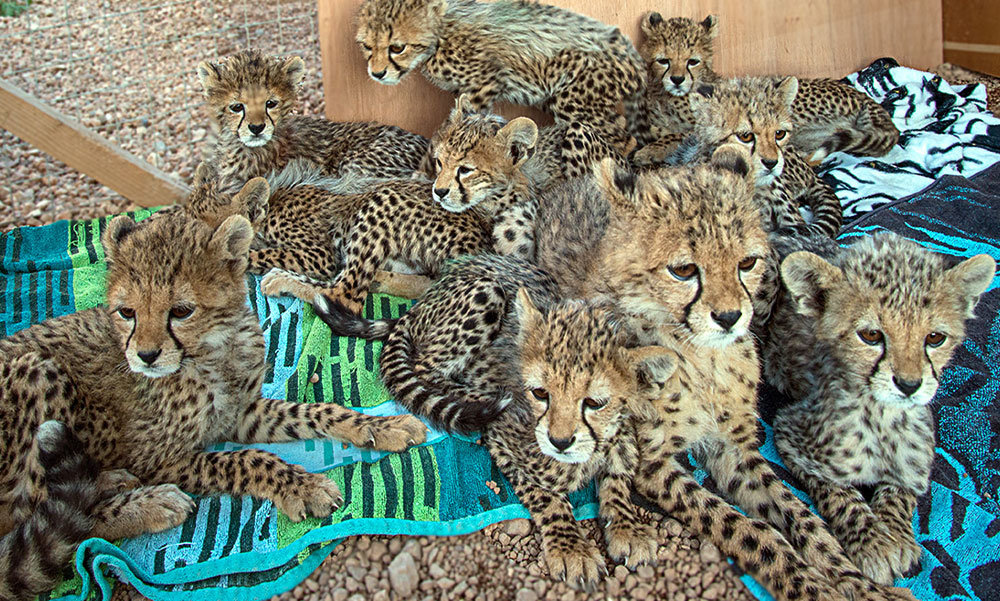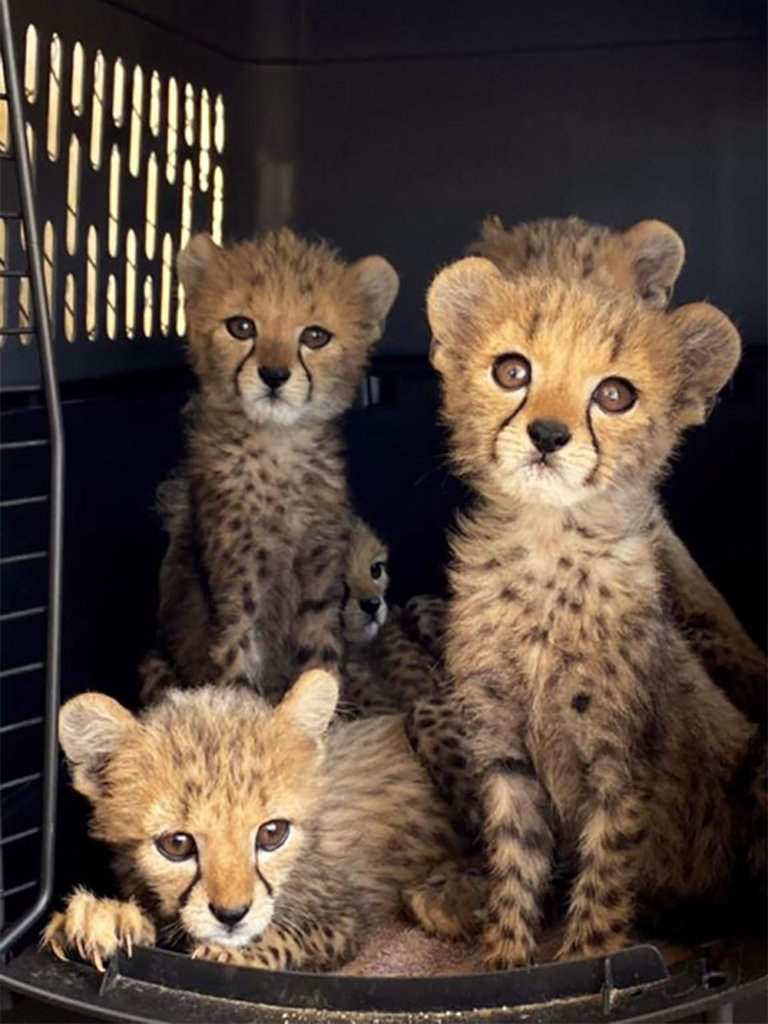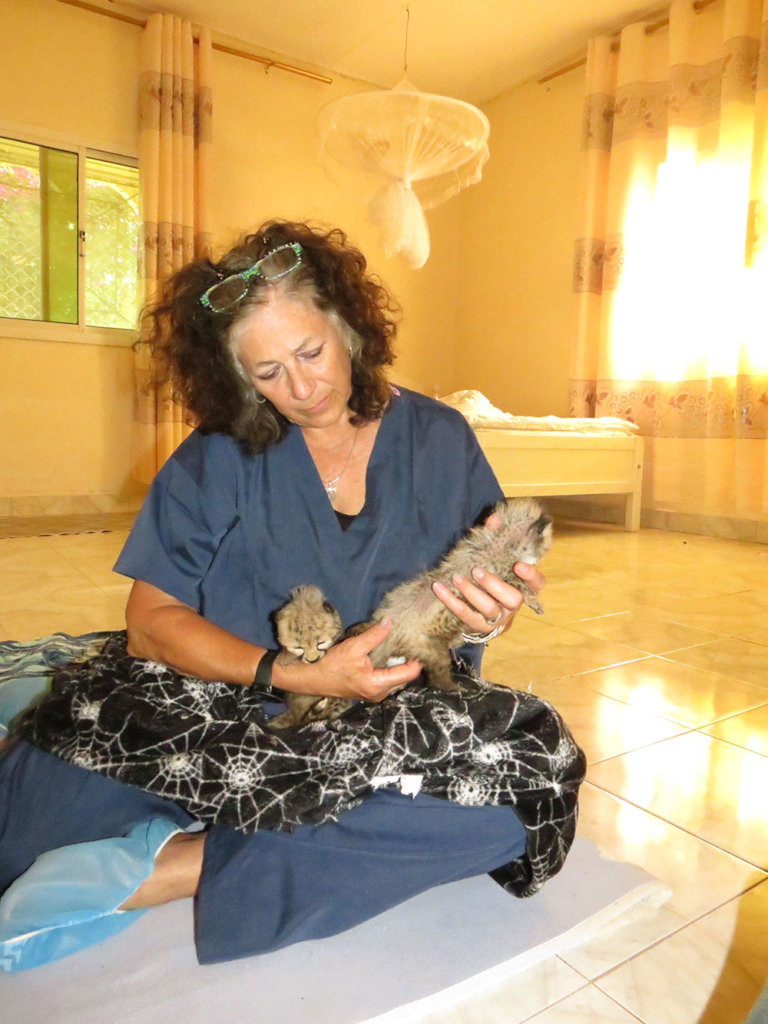By Cheetah Conservation Fund | CCF Staff
Immediate action is needed to protect cheetahs in this region, which are at high risk of local extinction.
OTJIWARONGO, Namibia — April 22, 2021 — Cheetah Conservation Fund (CCF) today announces a global campaign to “Eliminate, Neutralize and Disrupt (END) Cheetah Trafficking”, a worldwide effort to put an end to the poaching of cheetah cubs to supply the illegal pet trade. From 22nd April through 22nd June 2021, CCF and its network of affiliated organisations will conduct activities to generate awareness for the threat and raise funds for CCF’s work. CCF will also engage its social media audiences in dialogue on the issue of cheetah trafficking.
An estimated 300 cubs are being taken from the landscape in the Horn of Africa each year due to a deadly combination of illegal wildlife trade and human-wildlife conflict, while the population of reproducing cheetahs (adult and adolescent) is estimated to be fewer than 500 individuals.
“Every cub taken puts us one step closer to losing cheetahs in the Horn. People must stop poaching now. Not only are communities draining their own natural resources, but their actions are decreasing local biodiversity, which makes for unhealthy landscapes and impacts human communities in profound ways”, said Dr Laurie Marker, CCF’s Founder and Executive Director. “In the age of COVID-19, the importance of having healthy landscapes has never been so clear”.
Cheetahs are at a critical juncture in this part of Africa. Cubs are being stolen from their mothers in the wild to supply the international illegal exotic pet trade. They are also being taken domestically by nomadic farmers to prevent livestock predation, which is often mistakenly attributed to cheetahs. While the international trade in cheetahs is banned under CITES, animals continue to be smuggled from the Horn of Africa to the Arabian Peninsula via a well-established trade route between Somaliland and war-torn Yemen. The majority are sold via social media (Instagram and Facebook) and mobile phone apps, for the perceived status, likes and clicks. These actions are putting the population of cheetahs in the Horn of Africa at great risk for local extinction.
Why are Cheetahs Trafficked?
For thousands of years, the ancient world elite kept pet cheetahs as a status symbol. Today, there is still a high demand for cheetahs as pets, mainly emanating from Gulf states on the Arabian Peninsula. Cheetah cubs are snatched from rural areas in the Horn of Africa to meet this demand. Cheetah trafficking is mostly driven by poverty in the source countries. Some cheetahs are taken because of the illegal wildlife trade, while others are taken in a misguided attempt to prevent predation of livestock, then sold to traders as a means of disposal.
While buying captive-bred animals may still be legal, cheetahs are a species that historically do not breed well in captivity. To meet demand, want-to-be owners take pride in obtaining wild cheetahs, and they are not dissuaded by the illicit nature of the transaction, or they do not know the repercussion of this trade on the wild population. In some jurisdictions, it is still possible to legally acquire and possess the species, but the keeping of cheetahs as pets has been outlawed in most parts of the world.
Most prominently, the United Arab Emirates (UAE) instituted a national ban on exotic pets in 2016. CCF believes this law has been highly effective in reducing illegal trade and demand for wild cheetah cubs in the UAE, plus it has had a dampening effect in neighbouring countries.
CCF estimates that three out of four cubs taken from the wild (75%) will die before becoming a pet, having suffered from malnutrition, dehydration and lack of care in the hands of the traffickers. Of those that survive, the majority won’t live beyond two years, due to improper care by unqualified owners.
Human-wildlife conflict, climate change and long periods of drought have placed additional pressure on rural farmers who live alongside cheetahs. Losing even one livestock animal to a wild predator can be financially devastating. In retaliation, they sometimes choose to sell cheetah cubs to recover their losses. A farmer in the Horn of Africa may receive up to $100 USD per cub, but a seller providing the cub to the end buyer may receive up to $10,000 USD per sale. CCF is committed to reducing both supply and demand.
CCF’s campaign to end cheetah trafficking
CCF works with governments in the Horn of Africa and on the Arabian Peninsula to address the illegal wildlife trade in cheetahs. CCF assists the government of Somaliland by supporting wildlife seizure missions and providing immediate care for the cheetahs rescued. CCF is training veterinarians in Somaliland and Ethiopia to assist in these missions at the point of confiscation and to generate awareness for better livestock management practices. At the same time, CCF is building capacity in local wildlife authorities to enforce environmental laws through a project sponsored by UKAID’s Illegal Wildlife Trade Challenge Fund, “Legal Intelligence/Cheetah Illicit Trade” (LICIT), and executed in partnership with Legal Atlas and the International Fund for Animal Welfare (IFAW).
From a base in Hargeisa, Somaliland’s capital city, CCF also delivers round-the-clock care and rehabilitation for 56 cheetahs and one leopard rescued from the trade. CCF has established three ‘Safe Houses’ to temporarily provide shelter for these animals while developing plans for a CCF Rescue, Rehabilitation and Education Centre and cheetah sanctuary on land set aside by the government to become Somaliland’s first national park. This new facility will provide naturalistic housing for the rescued cheetahs, and education and tourism opportunities for future generations of Somalilanders.
Caption: CCF’s Founder and Executive Director, Dr Laurie Marker, leads an integrated international and local team of veterinary care providers in Hargeisa, Somaliland, that manage the growing number of cheetahs in CCF’s care.
Cheetahs are Africa’s most endangered big cat, listed as “Vulnerable” by the International Union for the Conservation of Nature (IUCN) Red List of Threatened Species. Fewer than 7,500 cheetahs remain in the wild worldwide, but this majestic cat is being pushed to the brink of local extinction in the Horn of Africa by cheetah trafficking.
Links:
Project reports on GlobalGiving are posted directly to globalgiving.org by Project Leaders as they are completed, generally every 3-4 months. To protect the integrity of these documents, GlobalGiving does not alter them; therefore you may find some language or formatting issues.
If you donate to this project or have donated to this project, you can recieve an email when this project posts a report. You can also subscribe for reports without donating.
Support this important cause by creating a personalized fundraising page.
Start a Fundraiser


